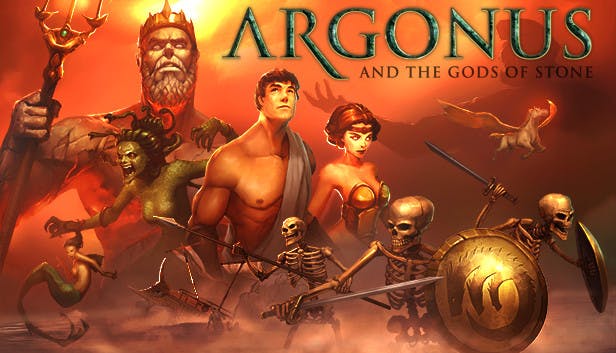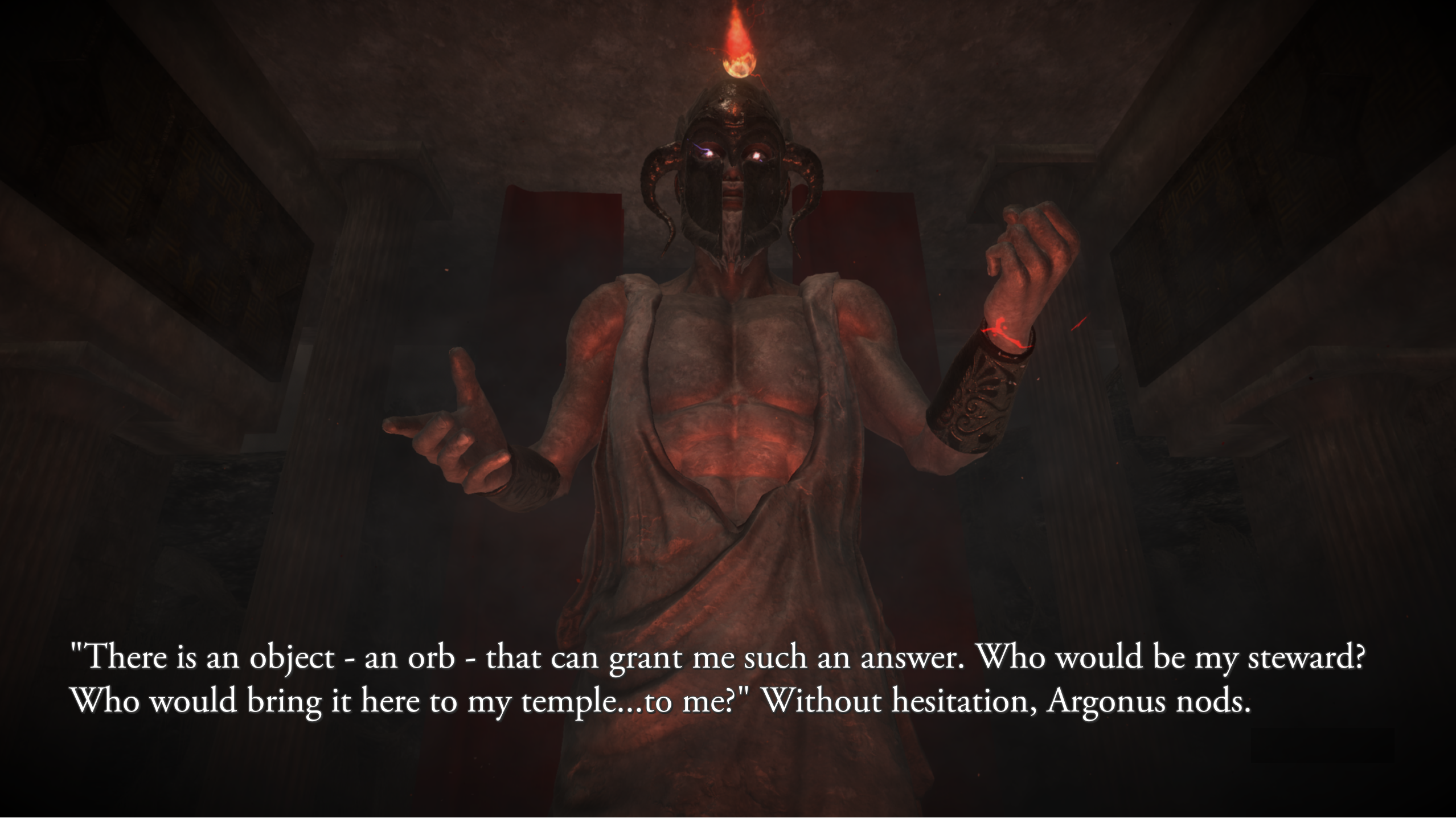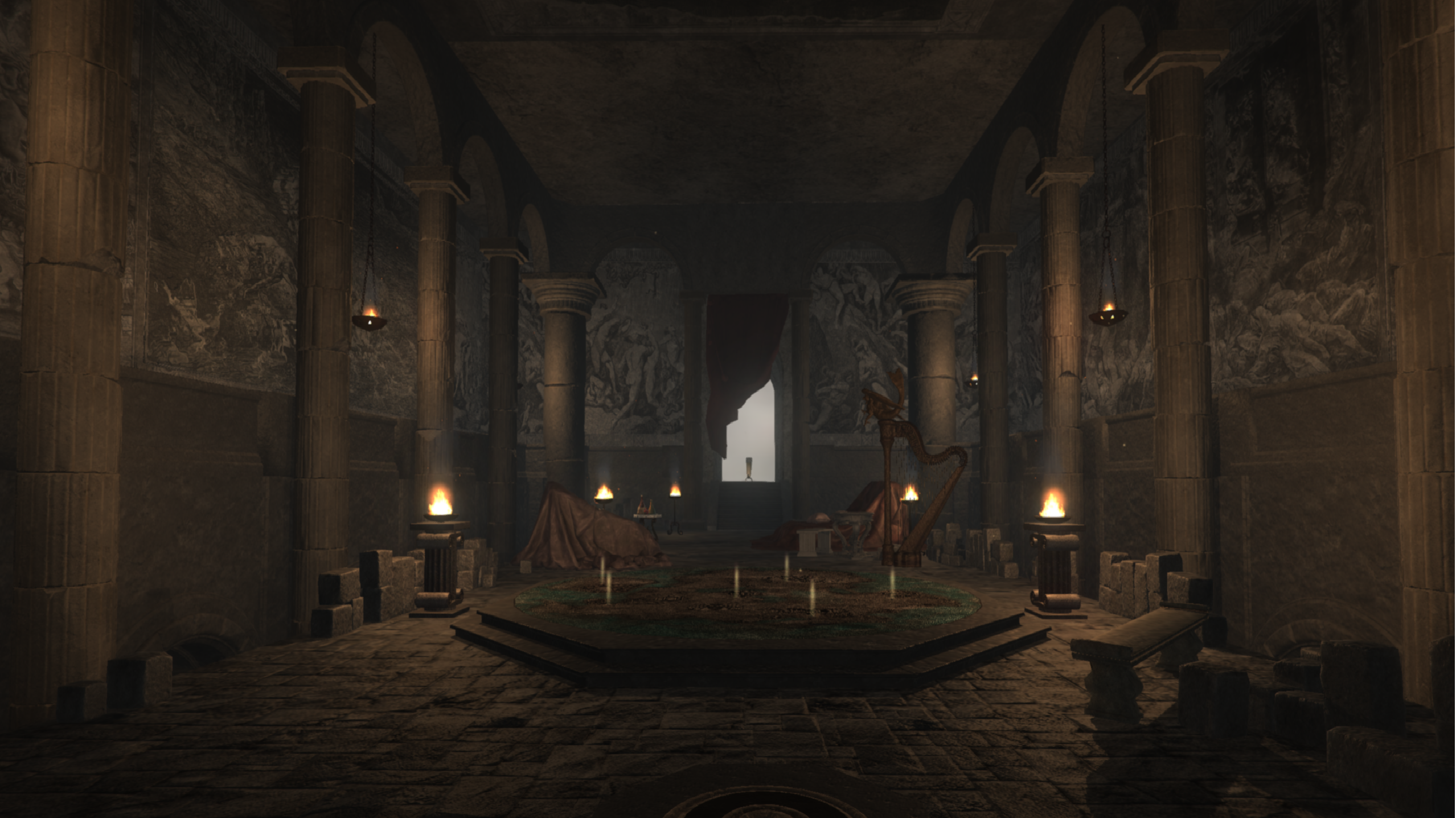Search
[{{{type}}}] {{{reason}}}
{{/data.error.root_cause}}{{{_source.title}}} {{#_source.showPrice}} {{{_source.displayPrice}}} {{/_source.showPrice}}
{{#_source.showLink}} {{/_source.showLink}} {{#_source.showDate}}{{{_source.displayDate}}}
{{/_source.showDate}}{{{_source.description}}}
{{#_source.additionalInfo}}{{#_source.additionalFields}} {{#title}} {{{label}}}: {{{title}}} {{/title}} {{/_source.additionalFields}}
{{/_source.additionalInfo}}- Details
- Category: Computer
- By Cinque Pierre
- Hits: 3865
Argonus and the Gods of Stone (PC)

Argonus and the Gods of Stone
Developed By: Azure Drop Studios; Zojoi
Published By: Zojoi
Released: October 8, 2019
Available On: Windows
Genre: Adventure
ESRB Rating: Not Rated
Number of Players: single player
Price: $19.99
(Humble Store Link)
Thank you Zojoi for sending us a review code!
Greek mythology is always an interesting subject to be tackled in media. It is one of the more known mythos out there, being as heavily documented as it is. Many companies and people also tend to take their creative liberties with Greek mythology ranging from the Percy Jackson series to DC Comics’ Wonder Woman. This time, to the ever-expanding list of Greek mythology in culture, is Argonus and the Gods of Stone.
Argonus and the Gods of Stone has you take control of Argonus, son of Argus the shipbuilder. One day in 1270 B.C., Argonus finds himself washed up on a beach, the ship Argo wrecked beyond repair, and all of his fellow Argonauts missing. As Argonus explores the beach, he notices these stone statues littered all around—but some of these statues look very familiar. These so-called “statues” are the petrified remains of the residents of the isle, as well as his fellow Argonauts. Shortly after this realization, Athena appears before Argonus and informs him that a blight or scourge has swept this island, with only Argonus being unaffected. Athena gives him the task of finding out who or what caused this blight.
Like many epics, an epic requires a narrator. The narrator, in this case, is Calliope, the Greek Muse of heroic poetry. Voiced by Betsy Brantley, this was a good casting choice for Calliope, as in Ancient Greek, Calliope literally means “beautiful voice.” Brantley’s performance is soothing to the ears and fits the character well (even though you never physically see Calliope in this epic). As Argonus explores the islands, he’ll come across temples where the inhabitants worship gods and goddesses like Poseidon, Hera, and Hades. Each god and goddess encountered are also voiced, with an echo and boom added to their vocals—fitting for their status.

Strong Points: The first-person perspective is a nice change of pace to the typical point-and-click style; solid voice acting; interesting story about the folly of both man and god
Weak Points: Frame drops and stuttering no matter what graphic setting you’re on; ending sequence peters out
Moral Warnings: Bloodstains and beheaded creatures can be seen about; Athena isn’t the most modestly dressed goddess, showing of a lot of leg and only a cloth to cover her private area; dialogue between two characters in a flashback implies that they had a primarily sexual relationship; supernatural elements and creatures all around such as hydras, griffons, and harpies; Argonus later in the adventure gains the ability to free souls
AatGOS is displayed through a 3D first-person view and plays like any first-person game would, with the H key bringing up a box at any time to remind you of the controls. Any object that can be interacted with has a circle over it; this can go from the petrified remains of people and creatures, the various scenery or items scattered, and other objects. Objects that have a translucent hand within the circle need an item to be interacted with and items that have a solid yellow hand instead can be stored in your inventory, that can be accessed with the E key.
Every object that can be interacted with is described by Calliope, either talking about the situation at hand or even making references to other Greek mythos, such as Heracles and his Twelve Labors. Not all of the information she says, however, is useful. She’ll even comment on the irrelevance of certain things Argonus interacts with, having a variety of ways of saying “this item or creature serves no purpose,” something I found quite humorous. Like most adventure games, items will act as keys to access later parts and that you’ll need to visit previous places when you gain other items.
Argonus himself rarely speaks, with the only time with him speaking is through Argonus’ diary entries as Argonus is a historian and cartographer. The diary entries can be accessed through the map with the press of the M key, in which Argonus goes into further detail of the events that unfold. Each entry is displayed through well-crafted hand drawings and it is very interesting to see how Argonus personally views this dreary situation. The Greek isle itself is of a fairly bland color pallet, with clouds covering the skies at nearly all times, the vegetation mostly being of flat brown colors and the lack of people and wildlife making the situation feel that much dire. Graphically, AatGOS does look nice but for a game of its status has an incredibly large draw distance—unnecessarily so. A GTX 970 far exceeds the minimal graphical requirements of a GTS 450 and when looking towards the distance (especially skyward) or any active movement like a waterfall, the frames would drop significantly. Unless you have a fairly modern and powerful graphics card, you might be spending a lot of time looking towards the ground, which is a shame.

Higher is better
(10/10 is perfect)
Game Score - 76%
Gameplay - 15/20
Graphics - 7/10
Sound - 8/10
Stability - 3/5
Controls - 5/5
Morality Score - 71%
Violence - 7/10
Language - 10/10
Sexual Content - 8.5/10
Occult/Supernatural - 0/10
Cultural/Moral/Ethical - 10/10
The music is like what you would hear from other mythology games, with a dynamic score. During more passive moments, the music is calm, yet eerie. During the few hectic moments, the music matches in kind with loud, boisterous instruments.
Language and dialogue are clean, although there are other aspects to keep watch of. Greek mythology has a lot of supernatural elements in their stories. You’ll encounter griffins, harpies, a petrified hydra, skeletons, and spirits. The latter mentioned in a way caused by Argonus as the second half of the game has Argonus trying to find a way to free the spirits so that they may travel to the afterlife. Since this is a Greek tale, there is the aspect of polytheism and for the gods and goddesses to help you out in your journey, you offer them a tribute in kind. Bloodstains on the ground can be seen on the ground, and early in the game, you’ll come across a decapitated hydra head. A character dies onscreen but the cause of the character’s injuries is unknown. In a flashback, it can be assumed through the conversation that the two characters (names withheld for spoiler reasons) had a sexual relationship. Athena shows off plenty of leg, and many of the female statues show off cleavage.
Argonus and the Gods of Stone’s progress is separated by five books, not all books being equal in length. The fifth book, in particular, can be the shortest or the longest depending on how you played as it is 99% backtracking. The voice acting is solid and directed well, and the sense of worldbuilding makes you want to find out what happens next. Any fan of Greek mythology will find this decent-length journey (about 3-7 hours) worth the price of admission. People who are unfamiliar with Greek fables may want to wait for a sale as the ending segment dwindles and the requirement to see the ending is vague. While not nearly as crazy as the source material, AatGOS still has aspects to be mindful of. Even with its budget constraints and the lack of the more intricate adventure mechanics like item crafting or fusion, this Greek epic is an interesting story of how the mistakes of both man and god led these Argonauts to their grim fate.






